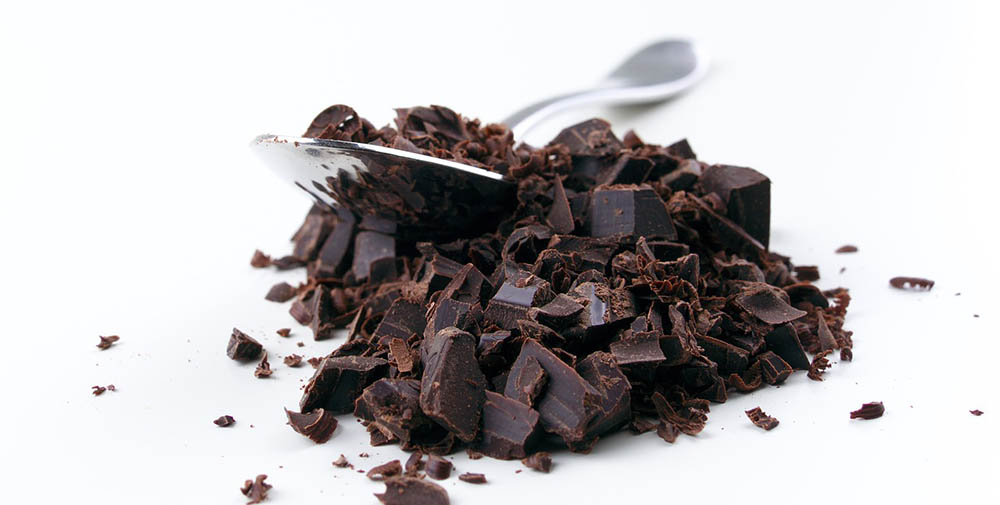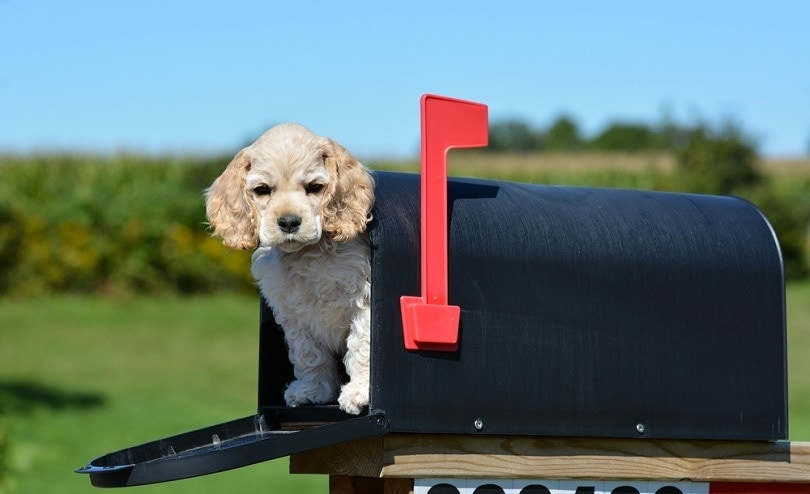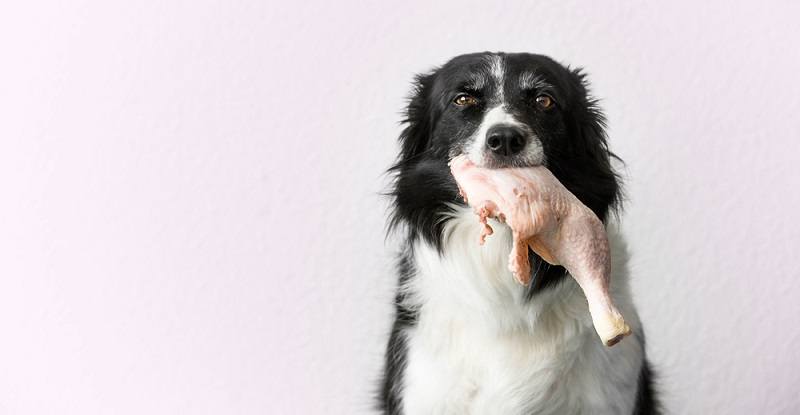Height:
22 – 26 inches
Weight:
50 – 90 pounds
Lifespan:
12 – 15 years
Colors:
Fawn, Red Gold, Gray Red, Silver Fawn, Palomino
Suitable for:
Active families, House with a Yard
Temperament:
Intelligent, Loyal, Calm, Social, Eager to Please, Affectionate
The Chinook is a purebred from the American Kennel Club’s Working Group that originated in Wonalancet, New Hampshire, U.S.A., in the early 1900s. Arthur Treadwell Walden, looking for a new kind of sled dog, bred a Husky with a type of Mastiff and ended up with the Chinook (which is a First Nations term that means “warm wind”).
The Chinook is a large-sized dog that is sturdy and muscular with triangular, floppy ears that can also be held erect. They have a short, thick double coat that is usually a fawn color but can come in a variety of shades such as silver fawn, palomino, red gold, and a gray red. The Chinook tends to have black on his muzzle and on his ears.
 Chinook Puppies – Before You Buy…
Chinook Puppies – Before You Buy…

The Chinook is a healthy and energetic dog that will live an average lifespan for a large dog. Chinooks are eager to please and very smart and are, therefore, relatively easy to train. They’re very social and friendly dogs.
What’s the Price of Chinook Puppies?
Chinook puppies are relatively rare, with an average of about 100 born per year. The cost of this rare dog might range from $1,500 to $2,500. If you decide to find a Chinook puppy through a breeder, you’ll want to make sure that the breeder is reputable and responsible and avoid puppy mills.
- Meet the breeder in person: You’ll want to make an appointment with the breeder first as most run their kennels from their homes. Do the dog’s living spaces seem well taken care of and are kept clean, and do the dogs themselves seem to have a strong bond with the breeder? If you are not able to go to the breeder’s kennels, do use video chat.
- Observe the puppy’s parents: When you meet the puppy’s parents, you’ll have the chance to check on their health and what their personalities are like. This can also provide you with a better idea about how your puppy might turn out when he becomes an adult.
- The dog’s medical background: You should always ask the breeder about their dog’s medical history and ask to see the various health certificates for their dogs, which should be made available to you.
- Ask all kinds of questions: Bring lots of questions to the breeder regarding your puppy and their dogs. A good breeder will actually encourage your questions as they want to be sure that your household will be a good fit for their puppy.
There are other expenses involved in the raising of a puppy and looking after a dog throughout his life.
- Toys for puppies for chewing and playing
- Dog harness, leash, and collar
- Bedding and dog crate
- Puppy training pads
- Puppy treats
- Grooming equipment
- Water and food bowls
- Puppy/dog food
- Grooming appointments
- Microchipping the puppy
- Vet appointments
- Obedience and training classes
- Vaccinations
- Spaying or neutering surgery
You might also think about adopting a Chinook as you’ll be giving him a second chance at a happier life. The cost of adopting a dog might range anywhere from $300 to $600. However, if you adopt a senior or special needs dog, a number of rescue groups will completely waive the adoption fee.
 3 Little-Known Facts About the Chinook
3 Little-Known Facts About the Chinook
1. The Chinook likes to “talk.”
They aren’t known to bark a lot but are prone to “talk” just like their husky ancestors.
2. The Chinook can be an escape artist.
They love to dig and shouldn’t be left alone outside for too long, regardless of how big the fence is. The Chinook is a determined and tireless worker and will more than likely find a way out of the enclosure.
3. The Chinook was almost extinct in recent history.
The Guinness World Records in 1965 recorded that the Chinook was the rarest dog in the world, with only 125 breeds known to exist at that time. Thankfully, breeders brought them back, and the Chinook became an AKC breed in 2013.
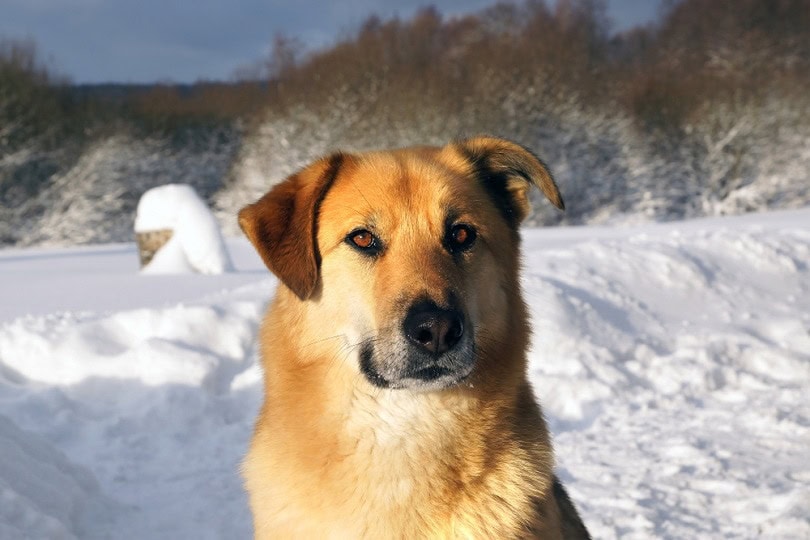
Temperament & Intelligence of the Chinook
The Chinook is a gentle, patient, and calm dog that is quiet indoors but very active and energetic when outdoors. They do not make good guard or watchdogs as they aren’t known to bark, and they tend to be very outgoing and social dogs.
The Chinook is a smart and loyal dog that will enjoy digging thanks to their sled dog ancestry. Providing them with a specific spot in your yard should help keep your lawn mostly intact. The Chinook is a sweet-natured dog that is strong but has no aggressive tendencies.
Are These Dogs Good for Families?
The Chinook is a fantastic family dog as they have the right amount of gentleness and playfulness for the children. They are very people-oriented and enjoy spending their time with the entire family. As with any breed, there should always be supervision around young children, and all children must be taught to respect dogs. You should never allow kids to pull on dog’s tails and ears and never let them ride a dog like a horse.
Does This Breed Get Along with Other Pets?
The Chinook gets along very well with other pets, particularly if they are raised together. Because they were bred to be sled dogs, this makes them pack dogs, and therefore they relish spending time with other dogs and even the family cat. The Chinook will still need early socialization as a puppy to ensure he will become a well-adjusted dog.

 Things to Know When Owning a Chinook:
Things to Know When Owning a Chinook:
Food & Diet Requirements
Your Chinook’s diet will depend on what age, size, and activity level he is throughout his life. Find a good dog food, like this one, and follow the instructions on the back of the dry dog food bag in order to determine how much your dog needs every day. Consider talking to your veterinarian if you’re ever worried about your dog’s weight and health.
Exercise
The Chinook is a working dog and while he might not be overly excitable, he’ll still need a regular amount of daily physical and mental exercises. They will make excellent companions for long hikes, walks, camping, and bike rides. You could also consider signing up your Chinook for pulling activities such as sledding since that is what he was bred for.
Training
Training your Chinook should prove easy provided you are consistent and use positive reinforcement as they are sensitive and intelligent dogs. They tend to do well off-leash, and their enthusiasm tends to show itself with the Chinook jumping up and placing their paws on people’s shoulders. Positive training should help your Chinook become a well-mannered pet.
Grooming ✂️
Your Chinook has a thick double coat of short fur that tends to shed a fair bit. He should be brushed approximately once a week, but he will likely need daily brushings during the shedding seasons of spring and fall. Your Chinook only needs a bath when absolutely necessary, which shouldn’t be more than once a month with a high-quality dog shampoo (like this one).
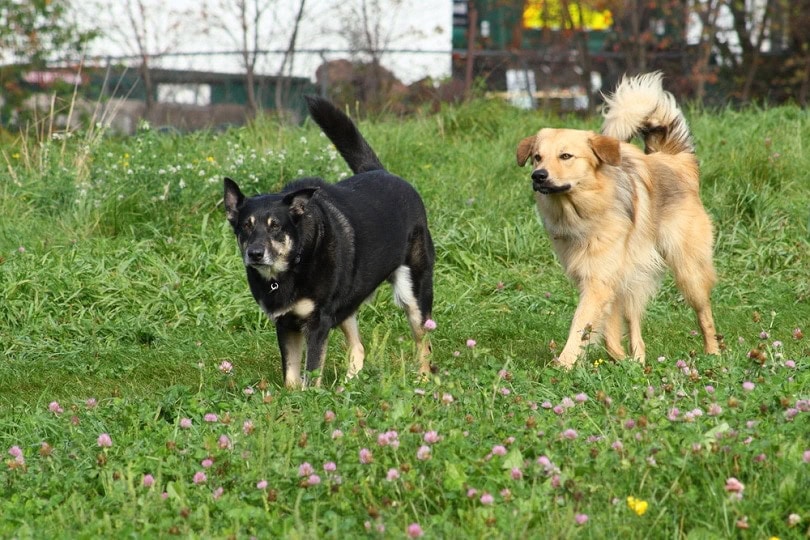
Trim the nails of your Chinook every 3 to 4 weeks, and brush his teeth about 2 or 3 times a week. You also need to clean his ears about once a month.
Health and Conditions
The Chinook is a very healthy, robust dog that might be prone to a few health conditions. Your vet will check your Chinook’s hips and will run an ultrasound as well as blood, urinalysis, and fecal tests to check for any of these conditions. The veterinarian will check your dog’s skin and run blood tests to check for any allergies your Chinook may have.
 Male vs. Female
Male vs. Female
The Chinook female is smaller than the male and usually has an unmistakably feminine appearance. The female is 22 to 24 inches in height and weighs 50 to 65 pounds. The male’s height is 24 to 26 inches and will weigh 55 to 90 pounds.
The next major difference between male and female Chinooks is electing to have surgery for your dog. Neutering the male is a less complex surgery than spaying the female and, therefore, it is less expensive and will take him less time to recover from. Other than the obvious advantage of preventing unwanted pregnancies and lessening aggressive behavior, spaying and neutering your dog can also potentially prolong your dog’s life by decreasing the likelihood of future health problems.
Lastly, many believe there are inherent behavioral differences between male and female dogs. Generally speaking, some believe that female dogs are easier to train and are more affectionate than male dogs, but there are disputes about this. How a dog was socialized and trained as a puppy and how he is treated as an adult will usually be one of the main determinates for his temperament and personality.
 Final Thoughts
Final Thoughts
If you’re looking to bring one of these beautiful dogs home, start by looking for a good breeder in your area. There are a few scattered around North America, but because the Chinook is relatively rare, you might need to consider flying your new puppy or dog to your home. Also, think about talking to your local or national dog club and attend dog shows. Post your interest in obtaining a Chinook on social media. You can also consider a breed-specific rescue group such as the Rescue Program run by the Chinook Owners Association.
The Chinook is a loving, gentle, and playful dog that will enjoy pulling a sled just as much as cuddling you in the evenings in front of the television.
Featured image credit: rwtrahul, Shutterstock


 Chinook Puppies – Before You Buy…
Chinook Puppies – Before You Buy… 3 Little-Known Facts About the Chinook
3 Little-Known Facts About the Chinook
 Things to Know When Owning a Chinook:
Things to Know When Owning a Chinook: Male vs. Female
Male vs. Female
